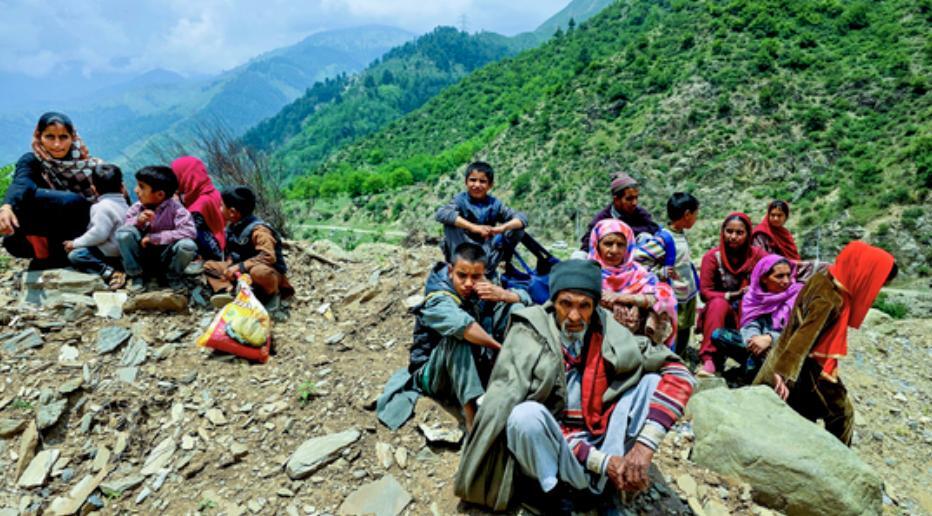
Title: Can’t Trust Pak: J&K Residents on Returning Home After Ceasefire
The India-Pakistan conflict has been a recurring issue, with both countries frequently engaging in ceasefire violations and border clashes. Recently, the situation escalated, leading to a significant increase in shelling and violence along the Line of Control (LoC) in Jammu and Kashmir. Despite the ceasefire agreement, residents of the border areas are still hesitant to return to their homes, citing a lack of trust in Pakistan.
In an interview with Hindustan Times, a resident of the border area expressed their desperation to return to their village, stating, “I am desperate to go to my village because I can’t open my shop…But people still believe war isn’t over.” This sentiment is echoed by many others who have been displaced due to the conflict.
The heavy shelling and violence in several areas of Jammu and Kashmir have left residents terrified. Many have lost their homes, businesses, and livelihoods, and are now struggling to make ends meet. Despite the ceasefire agreement, the fear of another attack or violation of the agreement remains a significant concern for the residents.
One resident shared their experience, saying, “I left my village on June 13 after Pakistan started shelling. I came back to Jammu and have been living here since then. I am still afraid to go back because I don’t know when the firing will start again.” This fear is not unfounded, as Pakistan has a history of violating agreements and engaging in ceasefire violations.
The residents’ reluctance to return to their homes is not just about the physical danger posed by the conflict. It is also about the psychological trauma and emotional distress caused by the constant threat of violence. Many have been separated from their loved ones, and the uncertainty of their future has left them feeling anxious and helpless.
The situation is particularly dire for women and children, who are often the most vulnerable during times of conflict. Many have been forced to flee their homes, leaving behind their belongings and livelihoods. The trauma and stress caused by the conflict can have long-lasting effects on their mental and emotional well-being.
The government has been working to provide assistance to the affected residents, including providing shelter, food, and medical care. However, the scale of the crisis is vast, and more needs to be done to support those affected.
In conclusion, the residents of Jammu and Kashmir’s border areas are desperate to return to their homes, but their fear and distrust of Pakistan are preventing them from doing so. The conflict has caused immense suffering and trauma, and it is essential that the government and other stakeholders work together to provide support and assistance to those affected.
It is also crucial that the government takes steps to rebuild trust between India and Pakistan, as the lack of trust is a significant obstacle to resolving the conflict. The government can do this by engaging in diplomacy and dialogue with Pakistan, and by taking steps to promote peace and stability in the region.
Ultimately, the residents of Jammu and Kashmir’s border areas deserve to live in peace and security, free from the fear of violence and conflict. It is up to the government and other stakeholders to work together to achieve this goal.






